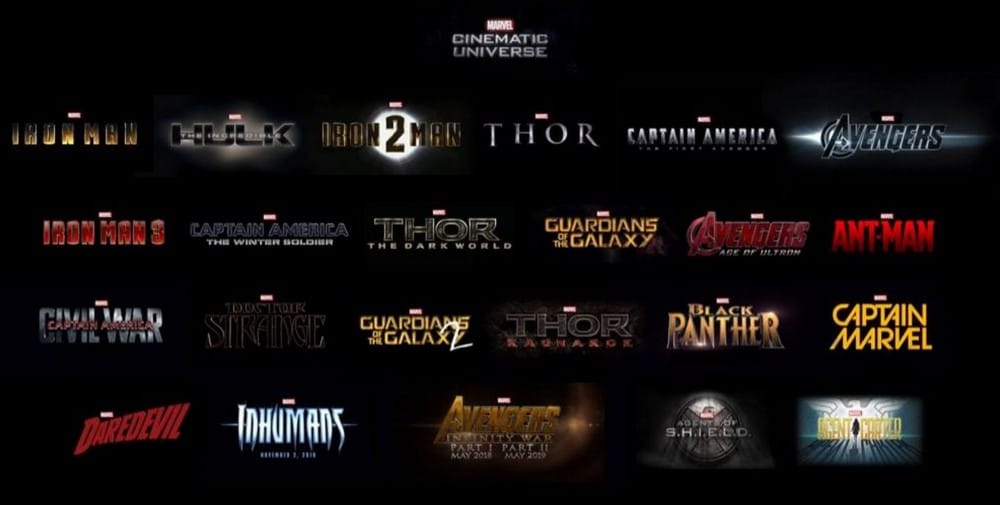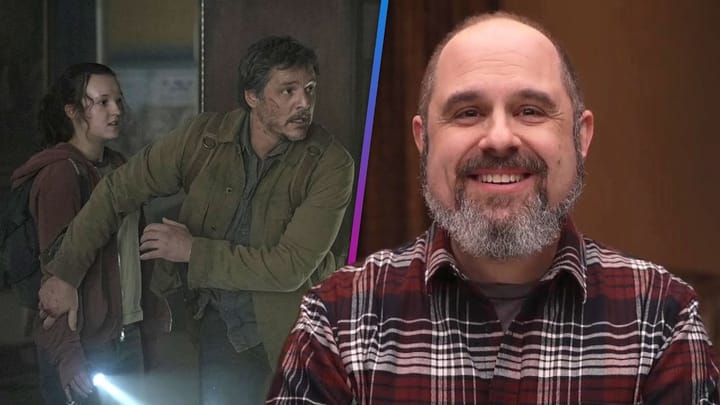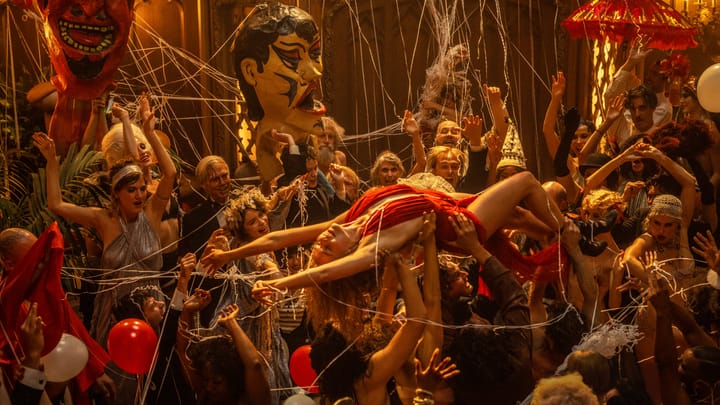Movies are the New TV
Movie franchises are TV series on the big screen and that worries me.

We are currently in the Golden Age of Television, so goes the generally accepted state of the TV landscape. We have an excess of riches when it comes to quality and quantity of the scripted television we watch, with continuously compelling options that are either appointment worthy or binge necessary.
Today television, what at one time was seen as the minor leagues or second tier to the more glamorous and financially lucrative film industry, is now where many creative artists want to work. It has matured from not only a sustainable business (which it has been for many many decades), but also into the top outlet for artistic freedom, creativity, and experimentation. All of the top creative positions from actors, to writers, to directors are jumping into TV land.
There is a two fold reason for TV’s creative rise; first is that since the Sopranos, TV dramas have found a new and hungry appetite, among audiences, for boundary pushing stories and characters that had been, until this point, usually reserved for the medium of film. The second reason is the inverse of the first. At the same time, the film market started to contract, looking to tentpoles and big franchise that could be retold with the same formula. It downsized risk for the studios, but at the expense of the smaller middle tier of movies that told compelling but contained stories, that did not parlay as well into ongoing installments or capture as wide of a general audience. TV discovered this void and promptly filled it.
This feels like the 70s in the movie business, the second Golden Era of Film. That is time after the upheaval of the studio system when corporations moved in and bought up the studios to add to their assets list. Their were tighter constraints and an adjustment period under this new structure.
Creative was not at the top of the list of needs of studios. But in the 70s, that began to change as a new crop of filmmakers, like Coppola, Spielberg, and Lucas to name a few, changed the way they made movies and the way we experienced them. That is the same thing that has happened with television in the past fifteen years. It started with David Chase and the Sopranos, but really took off with Mathew Weiner’s Mad Men and Vincent Gillian’s Breaking Bad. Those shows were the holy shit moment, that made every network envious to have a scripted show that was either a ratings hit or a critical darling with prestige, or ideally, both. Now there are so many quality shows that you can’t watch them all. From Netflix, to HBO, to AMC, to FX, to Amazon, they all have hit shows that people tune into, and are talking and buzzing about.

This evolution of TV shows have altered the way we experience stories in the home. The changed from the procedural and episodic formats to intricate serialized stories. We grow to know these characters, have feelings for them, put our own desires onto them. They allow for more complex storytelling with deeper explorations of characters and worlds, allowing moments to breath, or deeper background dive. This affordability of time, not available in films, was an asset.
Movies on the other hand have compressed. Maybe not necessarily in viewing time, but in story length. The nuanced films that once dominated theaters, have given way to the franchises, with major portions of screen time containing big set pieces, with each film becoming a bigger and bigger spectacle.
But as movies and TV had flipped roles, TV rose in prominence through characters while film consolidated into spectacle. The film experience morphing in only spectacle was predicted by Steven Spielberg and George Lucas a few years back. As film continues along it’s path to a fuller realization of the their expectation, the studios need to continue to pour in big money to up the ante with each new film. But in-order to safe guard against these large cash bets, they need material that has the best percentage of a great return on investment to satisfy their corporate parents.

The safest bets, as the executives see it, are to use existing popular properties that they already own or can purchase (Disneyed). Along with creating new franchises from the ground up (Marvel, DC), they have also extended the run of former franchises that seemed to originally be conceived collection of a few films and creating retroactive continuity out of them (Fast and Furious, and Saw Franchises).
A subsequent effect of continuous franchising are movies have effectively been serialized, looking to the strengths of the small screen. Whole universes have been created to allow the interweaving of stories into bigger event showings, that can continually be reproduced, seemingly endlessly. This is beginning to take the form that Spielberg and Lucas talked about, with movies that most people see in theaters be only big event franchise films.

Each new film is basically a new season in a long running TV series. With this strategy, studios are changing the viewing habits of their audiences. They are being tuned to go to the theater to see flashy tent poles, go to TV for everything else. This in the long run can have a disastrious effect on the movie business, as only tentpoles will be in theaters at all.
I for one loved the idea of film universes and still think there are good reasons to have them. But now that every studio and production company is trying to create one (the Conjuring Universe?), the idea is no longer novel or interesting. The first movie universe that I remember was the View Askew-iverse from Kevin Smith. His early movies such as Clerks, Mall Rats, and Chasing Amy, all lived within this universe. I thought this was amazing and so interesting and wish that they explored it more. I never got a deeper dive in the VA-everse, but when film universes started in the late aughts with Marvel being bought by Disney, I was just as excited.
This is more branding than anything though, and that novel idea has become a beast in and of itself. Studios and companies crave being able to repeat a working formula. And people do enjoy comfort of the known creating a cycle of brands and universes helping people feel comfortable by giving them what they know.
But this is exactly how the current film landscape begins to feel stale, like a marketing tool for the next film in the franchise. There are checkboxes that the filmmakers must check to satisfy the studio that their investment is beyond just one film.
TV has grown to a respected medium for artful story telling on the wave of serialized stories. While film has tried to use this tool as well, they haven’t had as successful of an outcome, showing the weakness in the approach. While Marvel has successfully created a strong engaging universe, DC has not been able to replicate this feat, ditto for Warner Brothers’ Monsterverse, Universal’s Dark Universe, and Paramount’s Transformer’s Universe. And it remains to be seen how Disney’s Star Wars franchise will fare with their proposed spinoffs.

One of the main problems with these Cinematic Universes, as with TV series, is the power of demising returns. The common idiom ‘jumping the shark’ is most commonly used to reference something past it’s peak. With TV series, the show continues on for more seasons with less riveting story beats and plot lines that are not engaging. With movies, these universes continue to use the same characters, with no finality to their overall story arch. In life, all things come to an end. With these universes in continually rising action, they loose their impact with each new movie.
Part of the mythology of movies and their stories is they did end at some point. In that moment, it was exciting and enthralling to live through the hype and the experience of the viewing in theaters, but when it finished, we have ability to revisit those stories again and again on video. Having that finality has served us well as an audience so far, but I fear we are spoiling that, with short term gratification of reopening narratives that were suppose to be closed.
While creating a movie universe does require strategic and long term plotting, the movement seems short sited in that they are seeding ground to TV and other newer mediums. Films continue have the grander scale of world building along with more focused story telling that makes them different from TV Shows. But TV has surged in their scale and artistic value over the past two decades, coming closer to these core strengths of film (Game of Thrones, The Crown). Movies must stop trying to mimic TV, and focus on their strengths of brevity, scale, finiteness. Maybe this is just the evolution of story telling in the modern era, but if there is an endless stream of films in universes, like of Marvel movies or Star Wars films, they will begin to loose their impact and immediacy as there will always be another one.





Comments ()